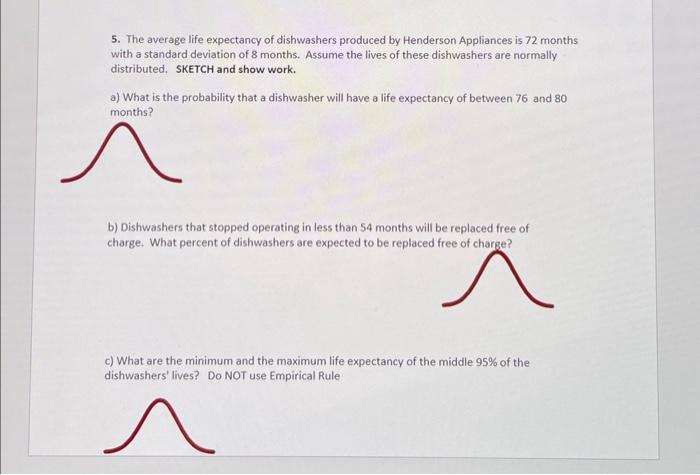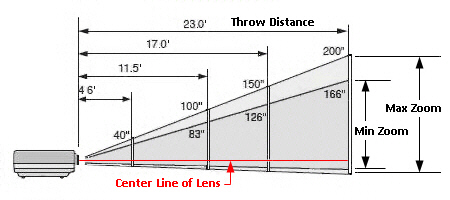Unmasking the Dishwasher's Lifespan: Life Expectancies And Maintenance Secrets
Introduction
Understanding the lifespan of your dishwasher can have a significant impact on your purchasing decisions and maintenance strategies. With a variety of brands available in the market, it is important to debunk myths about lifespan expectations and the role the brand and model play. This article aims to provide crucial insights into what constitutes a dishwasher's lifespan, its average expectancy, and the importance of regular care and maintenance. Importantly, knowing when to repair or replace your dishwasher can save you time, money, and hassle in the long run. Join us as we unmask the truths about dishwasher's lifespan.
What Constitutes the Lifespan of a Dishwasher?
The lifespan of a dishwasher isn't simply about how long it operates; it's about how effectively it functions over time. Here are some key determinants influencing this lifecycle:
- Brand and Model: The brand and model can significantly influence a dishwasher's lifespan. Premium brands often come with high-quality parts that promise durability.
- Frequency of use: Regularly using your dishwasher can actually stretch its lifespan by keeping parts moving and preventing seals from drying out. But remember, overuse can lead to quicker wear and tear.
- Maintenance Practices: Regular maintenance can prevent small issues from escalating into costly ones. Keeping filters clean, ensuring spray arms are clear, and using correct dishwasher detergents all contribute towards a longer lifespan.
- Hardness of Water: Hard water can build up scale in the dishwasher, which affects its effectiveness and longevity.
Understanding these contributing factors will help you maximize your dishwasher's lifespan and performance.
How Much Does the Brand and Model Matter in a Dishwasher's Lifespan?
The influence of a dishwasher's brand and model on its lifespan is significant and cannot be overlooked. Some of the ways these factors impact longevity include:
- Brand Reputation: High-end brands often use supreme quality materials in their appliances, leading to enhanced expectation of longevity.
- Model Features: Certain models come equipped with beneficial attributes that promote long-term use. For instance, advanced filtration systems and soil sensors significantly aid in preserving the lifespan of the dishwasher.
- Maintenance Practices: No matter how exceptional the brand or model, without regular upkeep, its lifespan can be dramatically decreased.
In conclusion, while the brand and model of a dishwasher can offer a good indication of its expected lifespan, regular maintenance and optimal usage cannot be compromised if you wish to maximize the longevity of your appliance.
(Approximately 150 words)
Dispelling Myths: What are the Real Numbers for the Average Life Expectancy of a Dishwasher?
It is common for homeowners to be clouded by often-repeated myths about dishwasher lifespans, with many believing they can last well beyond a decade or two. The reality, however, is slightly more complex and should be understood by anyone wanting to make an informed decision about dishwasher purchase and maintenance.
The Meat of the Matter: Average Lifespan
- Contrary to common belief, the real average life expectancy of a dishwasher is usually less than the touted one or two decades. Extensive research indicates that the average dishwasher life ranges around nine to ten years.
Data-Driven Understanding: National Association of Home Builder's Study
- Data presented by the National Association of Home Builders throws more light on the lifespan topic. The culled information shows that 67% of dishwashers replaced during a remodel were due to them being old and worn out rather than faulty.
- This indicates that the majority of dishwashers do reach the typical life expectancy but don't usually survive into the "decade two" as frequently believed.
Brand and Model Influence:
- These numbers can oscillate based on the brand quality or model of the dishwasher. Lower-end brands tend to have a shorter lifespan, while well-maintained, superior brand models can often squeeze out a few extra years.

The role of "Averages":
- The 'average' lifespan does not guarantee that your dishwasher will survive that exact amount. Instead, it is a statistical data-point that gives a fair idea about what can be expected. So, your dishwasher's life may fall short or even surpass this average, given various factors including maintenance, usage, and the initial quality of the appliance.
Understanding these numbers can pave the way for making informed decisions about the maintenance, repair, or replacement of your dishwasher.
In the next section, we will discuss how regular care and maintenance can effectively extend your dishwasher's life span and ensure more efficient operation.
How Can Regular Maintenance and Careful Usage Contribute to a Longer Dishwasher Life?
Routine maintenance and mindful usage of your dishwasher can play a significant role in extending its lifespan. The effects of consistent care go beyond mere surface appearance; it is a protective measure that ensures the dishwasher keeps performing optimally in the long run.
1. Regular Cleaning: Regularly cleaning the interior components of your dishwasher such as the filters and spray arms can prevent accumulated grime from hindering the functionality of these parts. According to Consumer Reports, properly maintained dishwashers typically last 10 years, highlighting the importance of these cleaning practices.
2. Ideal Loading Practices: Dishwashers are designed to accommodate a specific load of dishes. Chronic overloading can strain the motor and shorten the lifespan of the appliance. On the other hand, using it with too few dishes can lead to wasted energy and water.
3. Appropriate Detergent Use: Surprisingly, using the wrong type of detergent or too much of it can be damaging to dishwashers. Powdered detergents, for instance, are often abrasive and can cause wear and tear.
4. Adequate Frequency of Use: Irregular use of a dishwasher can cause seals to dry out and crack, leading to leaks that can damage the appliance. It's advisable to run your dishwasher at least once a week to keep it in good running order.
5. Failure Checks: Periodically inspect your dishwasher for any signs of failure such as excessive noise, failing to drain completely, or dishes remaining dirty after a full cycle. These can be early signs of more serious problems and should be addressed promptly for optimal performance.
Remember, every dishwasher is unique, and its lifespan is intricately tied to a variety of factors, including its brand, model, type, and individual usage pattern. However, incorporating regular maintenance coupled with smart usage choices can significantly contribute to a longer dishwasher life.
When should you Consider Repair or Replacement of your Dishwasher?
Determining the right time to repair or replace your dishwasher involves considering several key factors. Striking a balance between appliance longevity and cost-effectiveness is crucial. Here are some tell-tale signs, considerations, and guidelines to help make the decision easier:
- Inadequate Cleaning Performance: If your dishwasher isn't cleaning thoroughly even after eliminating possible problems like clogged sprayers or filters, it may be time for repair or replacement.
- Unusual Noises: Sounds like humming, rattling, or thumping can often indicate issues with the motor or pump, necessitating further investigation.
- Water Leaks: Leaking is a clear sign of a possible issue with the seals or gaskets. If left unaddressed, this can lead to severe water damage.

- Visual Signs: Look out for visible signs of damage such as rust. While it might simply need a new rack, rust on the unit itself may signal a more serious problem.
- Age of the Dishwasher: Generally, if your dishwasher has passed the 10-year mark, a new energy-efficient model may be more cost-effective in the long run. Newer models are designed to consume less energy and water, reducing your utility bills.
- Consider the Cost Ratio: As a guideline, if the cost of repair is more than 50% of the price of a new unit, it may be more economical to replace it.
Weighing this data allows homeowners to make informed decisions on whether to repair or replace their dishwashers. Newer models not only provide improved functionality but also have energy-saving features. However, if the appliance is younger, a simple repair could potentially add many more years to its lifetime. Remember, the 'right' choice will depend on various factors, including the dishwasher's current condition, its age, your budget, and your household's requirements.
Conclusion
Understanding the average lifespan of a dishwasher, the role of regular maintenance, and when to consider replacement is essential for optimal appliance management. Regular care and attentive usage can prolong your dishwasher's lifespan, providing better value for your investment.
Related FAQs about what is the average life expectancy of a dishwasher
Which brand of dishwasher has the longest lifespan?
High-end brands such as Miele and Bosch are often associated with longer lifespans due to their superior build quality. However, the lifespan can be greatly influenced by factors such as usage patterns and regular maintenance.
What are the telltale signs of a dying dishwasher?
Signs of a dying dishwasher may include inadequate cleaning performance, unusual noises, frequent water leaks, and visible signs of damage like rust. The age of the dishwasher should also be considered, as most have a lifespan of about 9-10 years.
Can I prolong my dishwasher's lifespan with regular maintenance and care?
Yes, regular maintenance and careful use can significantly extend your dishwasher's lifespan. This includes cleaning the interior components, adhering to recommended loading practices, using the right type and amount of detergent, and operating it regularly.







